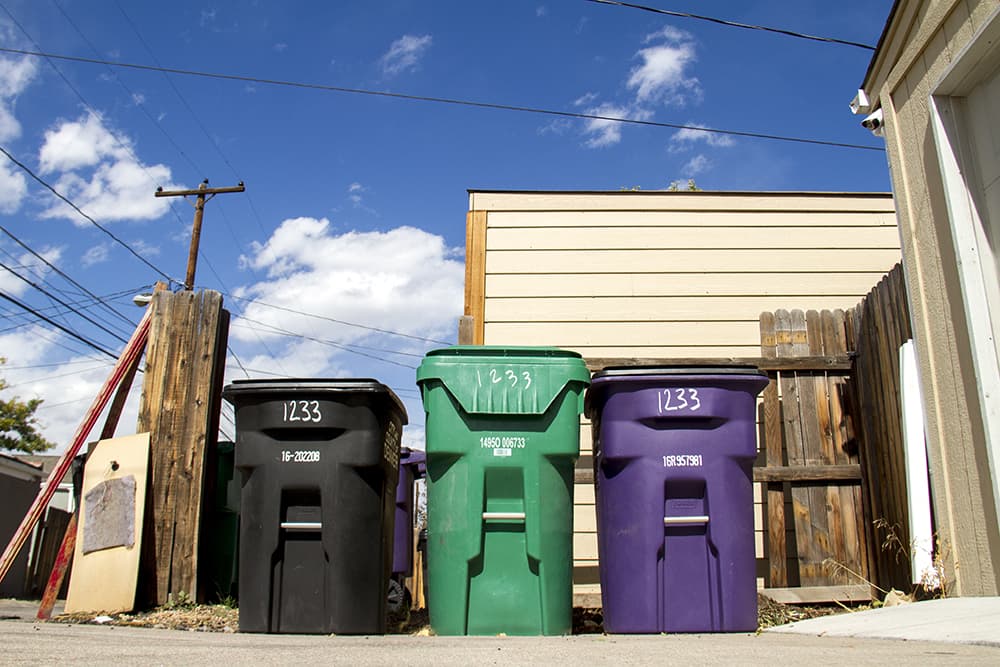
Denver's government has expanded its composting program to cover the entire city, city officials announced today. Every household that is eligible for municipal trash and recycling services -- about 176,000 in all -- are now eligible for compost pickup, too.
This is a major expansion of the city's composting program, which keeps organic materials such as food and grass out of the landfill. The city has doubled its compost capacity this year, adding six new routes for a total of 11.
However, you'll still have to sign up and pay specifically for compost pick-up.
"It’s huge to be able to offer composting now to all our customers in Denver because, as a community, we all benefit. Through this expansion, we expect to increase our waste diversion rates by 2 to 3 percent in 2018, sending less waste to the landfill and reducing greenhouse gas emissions," wrote Nancy Kuhn, spokesperson for Denver Public Works, in an email to Denverite.
Here's the deal.
Compost service is $29.25 for three months or $107 for a year -- so, a pretty decent discount if you pay annually. You can sign up here.
Enrollment is limited, so it's possible that you won't be allowed to sign up if you wait too long. As usual for Denver, large multi-family buildings and businesses are excluded.
Currently, about 12,000 households get composting service from Denver. City staff expect that this move will boost that figure to about 18,000 by 2018.
Denver introduced municipal composting in 2008 and started expanding it in 2014.
Denver is collectively terrible at recycling.
Currently, Denver only gets about 20 percent of its residential waste recycled. The national average for municipalities is 34 percent, according to the advocacy group CoPIRG.
Arvada, Northglenn and Westminster are even worse at recycling, managing to divert only 11 to 13 percent of their trash.
The city hopes this changes that.
Denver aims to get to 34 percent -- the national average -- by the year 2020. Last year, we dug deeper into why Denver's rate is so low.
About 10 percent of households tend to take advantage of the service when it becomes available.










